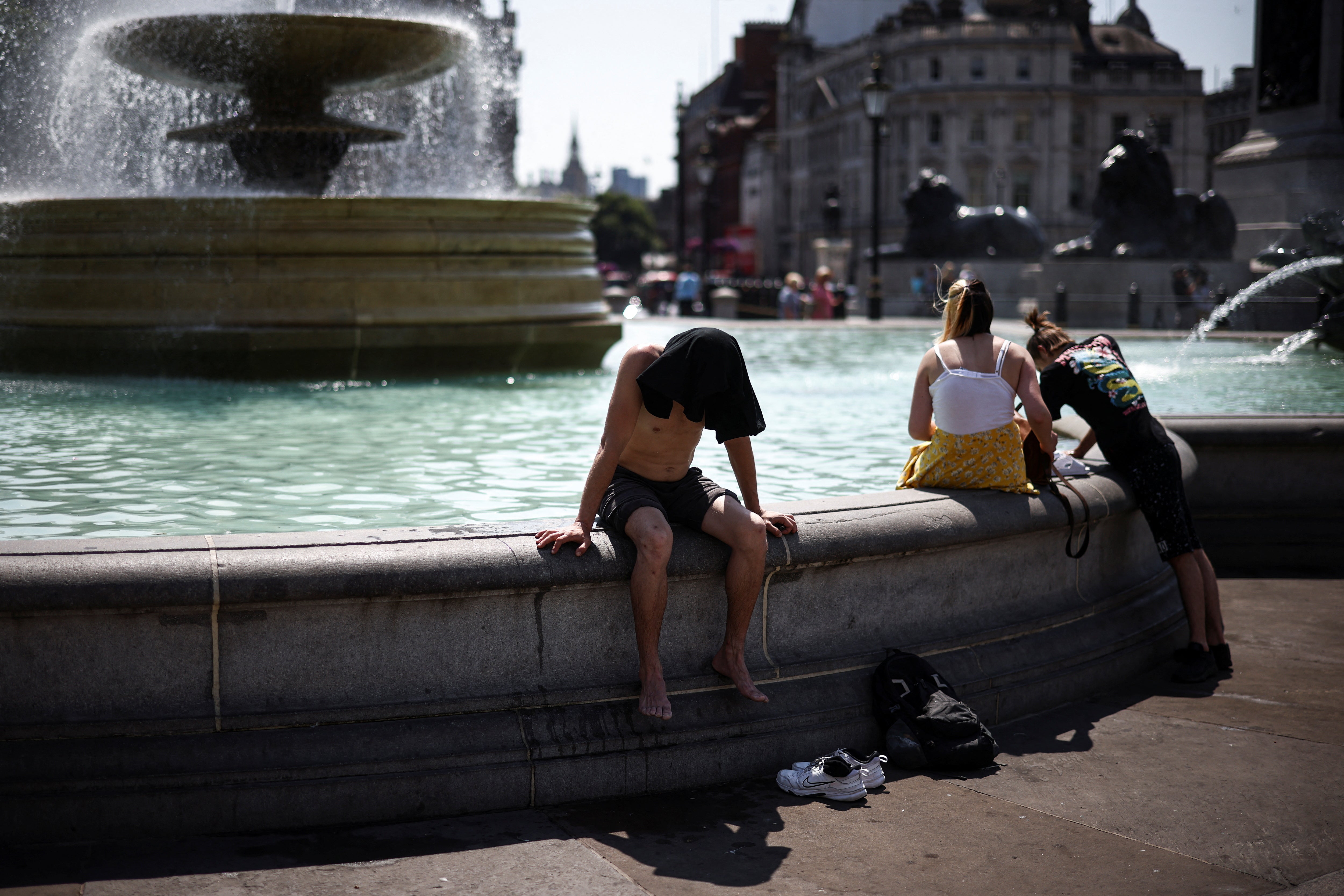More women ‘could die’ in UK heatwave than men, expert warns
‘They will be under more physiological strain. This puts strain on their heart and circulation,’ says expert

More women could die in the UK heatwave than men due to being “more vulnerable” to hot temperatures, an expert has said.
The UK recorded its hottest temperature in history before midday on Tuesday - with temperatures climbing to over 40C (104F).
Mike Tipson, Professor of Human and Applied Physiology at the Extreme Environments Laboratories, told The Independent women appear to be more at risk in heatwaves for both physiological and sociological reasons.
His comments echo research into heatwaves carried out in the Netherlands which found mortality rates were 15 per cent higher for elderly women than men - with researchers analysing statistics from the 2003 heatwave in France.
“Women are more vulnerable to hot weather,” Dr Tipson, based at the University of Portsmouth, said. “More women could die in the UK heatwave than men. It’s not just about physiology, it is also about behaviour and social context.”
Addressing the physiological reasons, Dr Tipson noted women tend to be smaller so heat up quicker than larger people.
He added: “Smaller people have a higher surface area to mass ratio. So if you put a given amount of heat into someone who weighs twice as much as someone else, the temperature will go up less in the bigger person.
“Women have more surface area to absorb heat and less mass to store it. This is why children heat up even more than women.”
England’s heatwave plan expressly cites women, individuals with acute physical or mental illness, as well as individuals who are over 75, babies, and young children, are at greater risk from the hot weather.
Dr Tipson added: “Because women will heat up a bit more, they will be under more physiological strain. This puts strain on their heart and circulation. Their heath is put more at risk by the hot weather than men.”
For some individuals, “small additional strain on their circulation and heart” will be “problematic”, he explained, saying women are more likely to experience this extra pressure than men due to hot climes.
The academic noted another issue is women sweat less than men which can be difficult as sweating is key to maintaining body temperature. While Dr Tipson also said women’s body temperature fluctuates during their menstrual cycle which means they “do worse in the heat when their body temperature is up.”
Addressing the sociological reasons which could explain the heatwave gender health gap, Dr Tipson said: “Women tend to remain more active in and around the house in general so therefore they are generating more heat doing household related activities - cleaning, preparing food, childcare, chores, but hopefully that is changing.”
His comments come after a national emergency was announced in the wake of a red extreme heat warning being declared for the first time ever. The government has noted even healthy Britons are at risk of falling ill or even dying as the heatwave continues to blast the UK.
Pregnant women are particularly at risk due to being at heightened risk of heatstroke and dehydration.
Advice from the National Childbirth Trust (NCT) states: “If a pregnant woman’s body temperature rises above 39.2C in the first 12 weeks of pregnancy, the baby has a slightly increased risk of having a birth defect.
“It’s therefore best to avoid overexerting yourself, particularly in the first trimester of pregnancy. If there is a sudden heatwave and it’s very hot and humid, you will need to take it easy and avoid exercising.”
Temperatures are predicted to potentially climb as high as 43C on Tuesday, with the heatwave already forcing schools to close altogether or end early. Meanwhile, trains have been disrupted and cancelled and a European forecaster issued a warning there is “very extreme danger” of wildfire in some areas of Britain.
Join our commenting forum
Join thought-provoking conversations, follow other Independent readers and see their replies
Comments





Bookmark popover
Removed from bookmarks